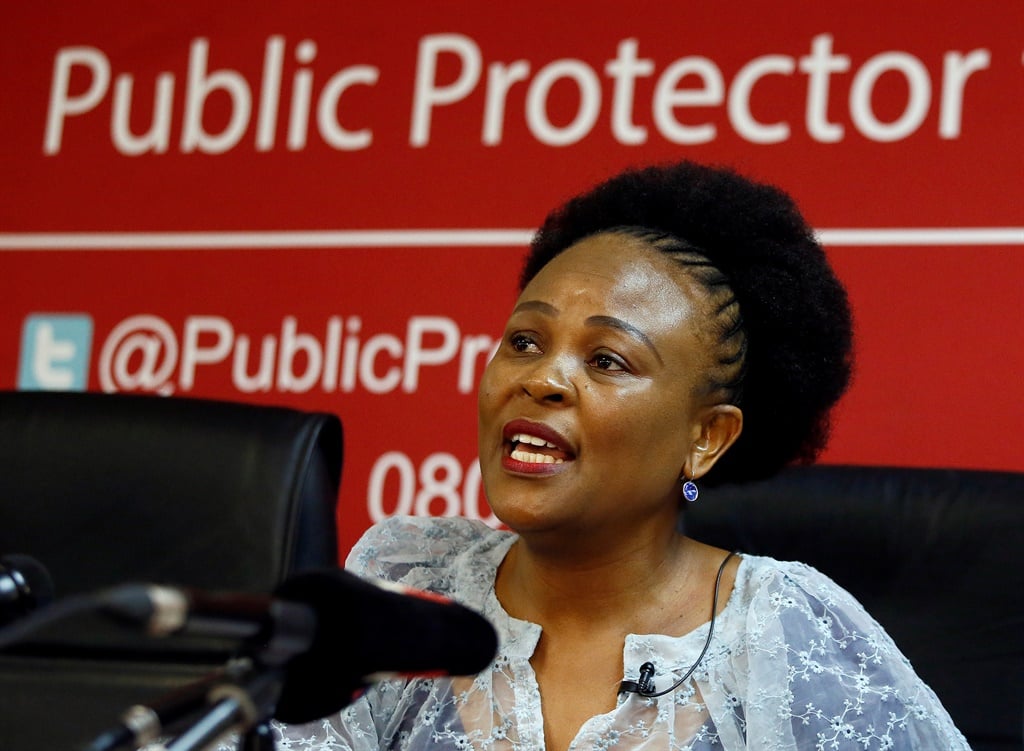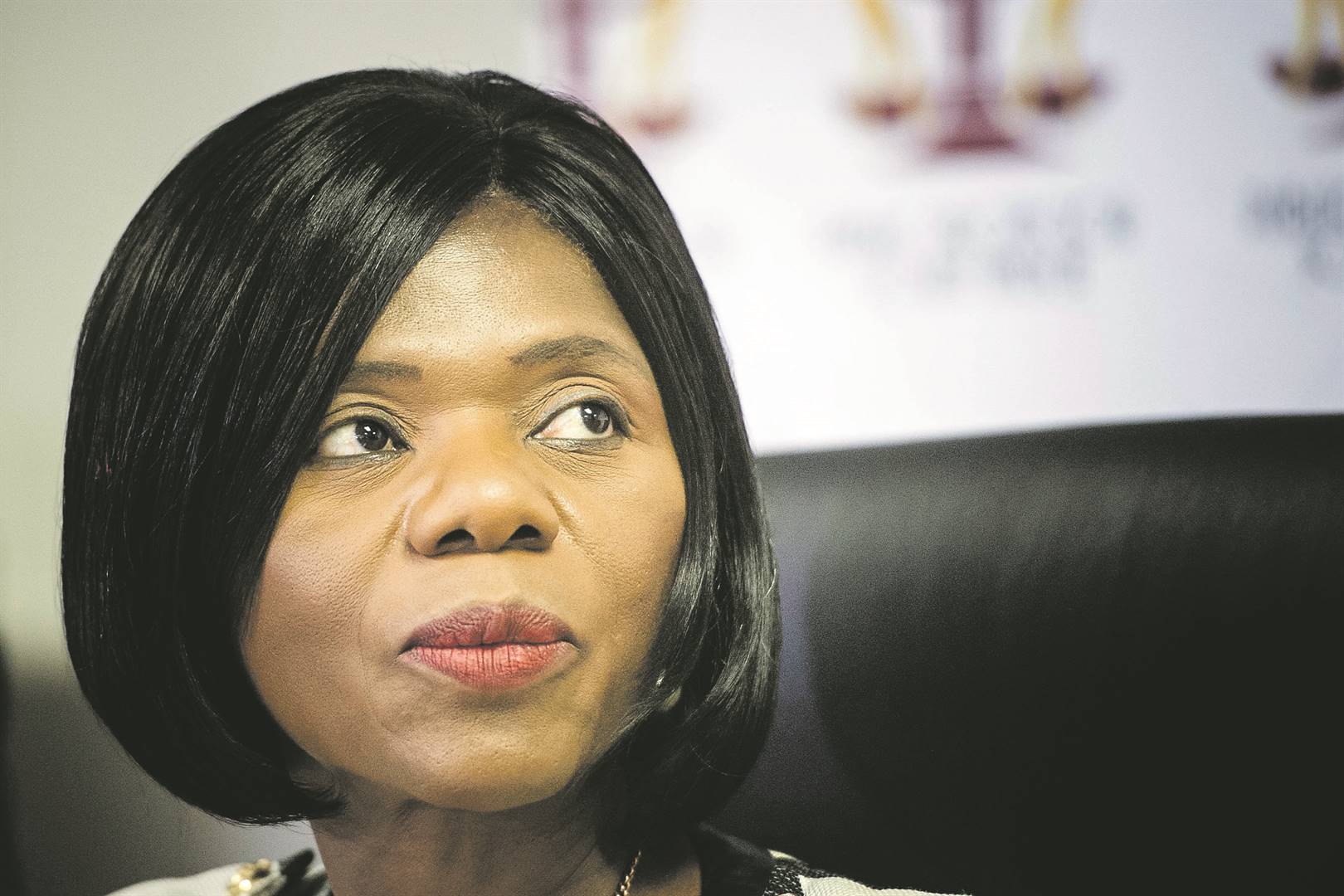
We seem to be trapped in a vicious cycle where those who wield considerable public power do not want to be held accountable at all or at least on their own terms.
The last Public Protector endured extreme vilification and endured public scorn for seeking to ensure the accountability of our erstwhile leaders.
Fortunately, the highest court vindicated her.
Her tenure left, among others, a sitting president with serious egg on his face and Parliament embarrassed.
In a turn of events, the current Public Protector is fighting for dear life with roles reversed as Parliament tries to hold her accountable.
This happens at the same time as the Public Protector is seeking to hold the sitting president accountable.
Our law reports have names of those who wield considerable public power more than the names of ordinary citizens.
Maybe these are the real fruits of our constitutional democracy.
The issues involving the Public Protector seem to better explain our constitutional framework and the true meaning of the values underlying our constitutional democracy.
At the heart of the dispute involving the Public Protector lies the correct interpretation of what independence means versus accountability.
The Constitutional Court resolved one part of what appeared to be some confusion regarding the actual status of the Public Protector in the scheme of our constitutional arrangement.
Those who remember, our erstwhile Public Protector at some point equated herself with a judge of a high court.
She truly believed that she occupied a position akin to that of a judge.
That was before the Constitutional Court resolved the matter and in the process opened a flurry of judicial review applications.
The Constitutional Court ruled that the remedial action of the Public Protector cannot simply be ignored and that it remained of force and effect until set aside on judicial review.
The judgement in essence subjected the work of the Public Protector to the authority of the judiciary effectively undermining any suggestion that any such remedial action is akin to a court judgement.
The implication of the judgement was to leave the door open that the Public Protector could err in making remedial action and that same may require correction.
In this way the work of the Public Protector could not be treated as an absolute which is unassailable. The judgement further means that the Public Protector – like all other state functionaries – stood to be held accountable and under the control of an arm of the state.
It also meant that those who felt aggrieved by the remedial action of the Public Protector have a remedy and can initiate proceedings to hold the Public Protector accountable for her work and remedial action.
The judicial review process is the mechanism provided in law to test whether the Public Protector did a good job or not in the same way the president or the Parliament speaker’s work and actions can be tested in a court of law.
If the court were to find that the president or the speaker misconducted themselves, it will express its disdain for their conduct.
The process of appointing the Public Protector involves two arms of the state – Parliament and the executive – each with its distinct role in the process.
Once appointed, all three arms of state have a role to play in holding the Public Protector accountable.
One important restriction placed on the Public Protector is that he or she cannot investigate court decisions.
Unlike the other two arms of the state, the executive and the legislature, the judiciary is out of the reach of the Public Protector.
This is an important and interesting limitation.
Whilst the Public Protector can investigate even those who appointed her or him, she or he cannot investigate the actions of members of the judiciary.
The legislature which appointed the Public Protector is not precluded in law from investigating him or her.
The fact that the Public Protector is established to ensure accountability does not mean that he or she cannot be held accountable.
The fact that the Public Protector must be independent does not mean that he or she cannot and must not be held accountable.
The big difference between the issue of independence raised by the erstwhile Public Protector and the current one is that in the case of the latter is a matter which involves her conduct in relation to her work. The former raised the issue more in the context of asserting the authority of the office to make binding remedial action.
Even though the Constitutional Court may have not confirmed the view of the former Public Protector – that she enjoyed the status of a judge – it asserted an important principle that her remedial action was not a mere recommendation.
This may have been short of her view of the status of the office but it nevertheless gave clear and proper meaning on her interpretation of the binding effect of her remedial action.
The current situation is materially different.
It is less about the independence of the office and more about the claimed independence of the incumbent and her conduct.
One of the key founding principles of our Constitution is the supremacy of the Constitution and the rule of law.
The Constitution gives the power to ensure the accountability of the all state functionaries to various other functionaries.
The president is accountable to Parliament which is effectively his or her employer.
Not only does Parliament appoint the president but it has the reciprocal power to remove him or her from office.
In addition to the powers of Parliament, the president is subject to other accountability measures such as the Public Protector who can investigate him or her and the judiciary which can review his decisions and order him or her to comply with the law.
The president, regardless of the extensive powers she or he holds and the independence she or enjoys, remains under certain control measures.
The same is to be said of the Chief Justice and the speaker of Parliament.
These two hold extensive powers which they can only exercise in accordance with the Constitution and the law.
These measures are designed to strike a proper balance in our constitutional scheme.
They’re really wholly independent but not.
The Chief Justice and members of the judiciary hold considerable power and are required by the Constitution to be independent and act without fear or favour.
But even they do remain subject to the Constitution and law.
It is for this reason that their own considerable power is not unlimited and uncontrolled.
Nothing says that the Chief Justice or any judge cannot be removed from office should the factors which qualify for such removal be present.
This does not by any means suggest that they cannot be independent.
One of the reasons a judge can be removed from office is incompetence.
The speaker and the president can also be removed from office for the same reason.
Whilst the process and procedure to remove them from office may differ, the principle remains that they may be removed.
Institutions supporting constitutional democracy like the Public Protector are required by the Constitution to be independent and act without fear or favour.
Nothing says that an incumbent of the position of a Public Protector cannot misconduct him or herself warranting a consideration of action to remedy such misconduct.
The Constitution is explicit that the Public Protector is subject to it and law.
This simply means that every other functionary of the state like the Chief Justice, the speaker and the president, the Public Protector is subject to scrutiny and must be held accountable for their actions.
The Public Protector is accountable to the National Assembly.
Accountability includes being answerable and subject to the control of the National Assembly.
This means that the National Assembly exercises control over the Public Protector and can hold her to account for her actions.
The power of control involves the authority to call upon the Public Protector to justify her actions and be disciplined should the Public Protector fail to justify any of the actions the National Assembly requires justification on.
The judgements of the courts on the work and the conduct of the Public Protector are part of the constitutionally entrenched accountability mechanisms we have in the same way that the Public Protector can investigate the president or the speaker.
The process of the Judicial Conduct Committee which can culminate in the removal from office is part of the accountability measures we have in law.
The judiciary experienced the same challenges when certain judges challenged attempts to hold them accountable for their conduct.
In the final analysis they are to be held accountable as per the dictates of our Constitution.
Like all other citizens and persons, these functionaries have rights which must be fully respected and they must not be subjected to arbitrary processes.
Subjecting any functionary to an arbitrary process will undermine the very essence of our constitutional democracy.
It is however dangerous to our constitutional order when those who hold considerable public power become entitled to escape scrutiny and accountability. Outside of the rigours of the law lies an ethical issue when they resist being held accountable.
One of their primary responsibilities is to hold others accountable.
They should be the first to avail themselves to be held accountable.
In the same vein, it will be a danger to our constitutional democracy when accountability measures are used to settle scores.
That would erode our constitutional values.
It cannot be that ordinary folk are held accountable on a daily basis when those who wield considerable public power cannot be held accountable.
The imperfections of the accountability measures cannot be a basis for refusing to be held accountable. When police arrest suspects of crime, they are holding them accountable and initiating a process of accountability.
When employees are charged with misconduct and dismissed, they are being held accountable.
- Mannya is an advocate, writer and executive director of legal services at Unisa
 | ||||||||||||||||||||||||||
Get in touchCity Press | ||||||||||||||||||||||||||
| ||||||||||||||||||||||||||
| Rise above the clutter | Choose your news | City Press in your inbox | ||||||||||||||||||||||||||
| City Press is an agenda-setting South African news brand that publishes across platforms. Its flagship print edition is distributed on a Sunday. |




 Publications
Publications
 Partners
Partners









